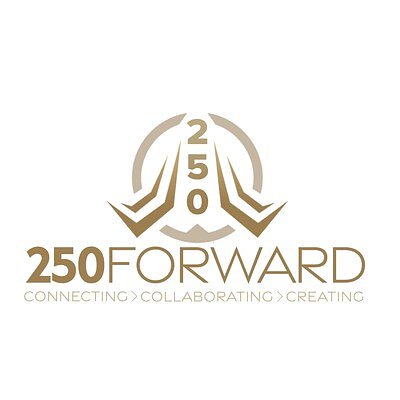
Tech-Driven Mentorship Aims to Unlock Economic Potential for HBCU Students
A new initiative leveraging AI-powered mentorship seeks to build on the legacy of the Higher Education Act, empowering students at Historically Black Colleges and Universities to become innovators and entrepreneurs.
Tech-Driven Mentorship Aims to Unlock Economic Potential for HBCU Students
Birmingham, AL – November 5, 2025 – In a move designed to build upon the foundations laid by the Higher Education Act of 1965, a new mentorship program, 250 Forward, officially launched this week at the National Association of African American Honors Programs (NAAAHP) Conference. The initiative connects students at Historically Black Colleges and Universities (HBCUs) with professionals across various sectors, aiming not only to provide guidance but also to foster entrepreneurship and drive economic impact.
Developed by the 2150 Center for Innovation in collaboration with Miles College, UMass Boston, and the MentorPRO platform, 250 Forward distinguishes itself through its innovative use of artificial intelligence. Unlike traditional mentorship programs, 250 Forward utilizes AI to streamline matching, personalize learning paths, and provide data-driven insights—all while maintaining a strong emphasis on human connection.
Building on a Legacy of Access
The timing of the launch is deliberate. The Higher Education Act of 1965 fundamentally changed access to higher education for many Americans. “The original act opened doors,” explains a program director involved in the initiative. “We’re aiming to build on that foundation, not just providing access to education, but access through education to meaningful careers and economic opportunities.”
AI as a Facilitator, Not a Replacement
The core of 250 Forward’s technology is the MentorPRO platform. While AI is used for initial matching based on skills, interests, and career goals, program leaders are quick to emphasize that human mentors are crucial. “The AI handles the logistics and data analysis,” says a researcher at UMass Boston involved in the program's development, “but it’s the human connection that truly makes a difference. Our mentors provide emotional support, career guidance, and personalized advice that an algorithm simply can’t replicate.”
The platform employs Natural Language Processing (NLP) to analyze mentor-mentee communications and identify areas for improvement, but, crucially, all substantive guidance remains in the hands of the human mentors.
A Focus on Economic Impact
What sets 250 Forward apart from many other mentorship initiatives is its ambitious goal: to generate $250 million in economic impact. This isn't merely about placing students in jobs, but about fostering an entrepreneurial spirit and empowering them to create their own opportunities. “We’re encouraging students to think outside the box, to identify problems in their communities, and to develop innovative solutions,” states a program administrator at Miles College. “We want to create a pipeline of HBCU graduates who are not just employable, but job creators.”
Program leaders recognize the challenges involved in achieving this goal. Dependence on external funding, market volatility, and the ability to attract and retain high-quality mentors are all potential hurdles. However, they believe the program’s unique approach and targeted focus on economic development give it a strong foundation for success.
Beyond Matching: Personalized Learning Paths
250 Forward’s use of AI extends beyond initial matching. The MentorPRO platform creates personalized learning paths for each student, based on their individual goals and skill sets. AI algorithms analyze mentorship sessions and provide recommendations for relevant courses, workshops, and networking events. “We’re not just connecting students with mentors,” explains a researcher at UMass Boston. “We’re creating a holistic learning ecosystem that supports their growth and development.”
A Comparative Look at Mentorship Programs
While several organizations offer mentorship programs for HBCU students, including the Thurgood Marshall College Fund and the United Negro College Fund, 250 Forward distinguishes itself through its extensive use of AI and its specific focus on economic impact. “Many programs focus on career readiness,” says a program director involved in the initiative. “We’re going a step further, empowering students to become innovators and entrepreneurs.”
On the Ground at NAAAHP
The launch at the NAAAHP conference was met with enthusiastic responses from both students and mentors. “I’m excited about the opportunity to connect with professionals in my field,” said one student attending the conference. “The AI component is interesting, but it’s the human connection that I’m most looking forward to.” Mentors expressed similar enthusiasm, highlighting the program’s potential to make a meaningful difference in the lives of HBCU students.
Challenges and Future Directions
While the program shows immense promise, its long-term success hinges on securing sustainable funding and maintaining the quality of its mentorship network. The organization is exploring partnerships with corporations and foundations to ensure its financial stability. Furthermore, program leaders are committed to providing ongoing training and support to mentors, ensuring they have the resources they need to effectively guide their mentees.
The launch of 250 Forward represents a significant step forward in addressing the opportunity gap for HBCU students. By leveraging the power of AI while prioritizing human connection, the program aims to unlock the economic potential of a generation of innovators and entrepreneurs. As one administrator stated, “We’re not just building a mentorship program; we’re building a future.”
